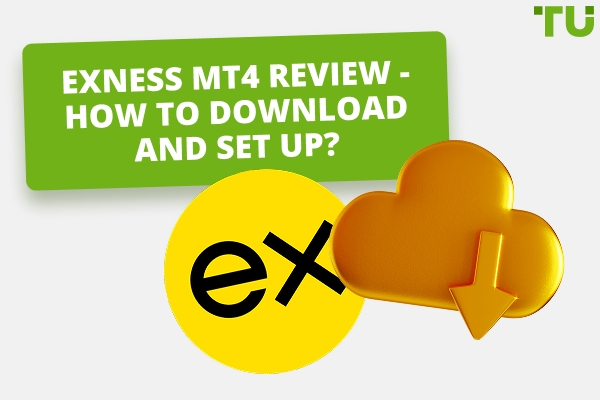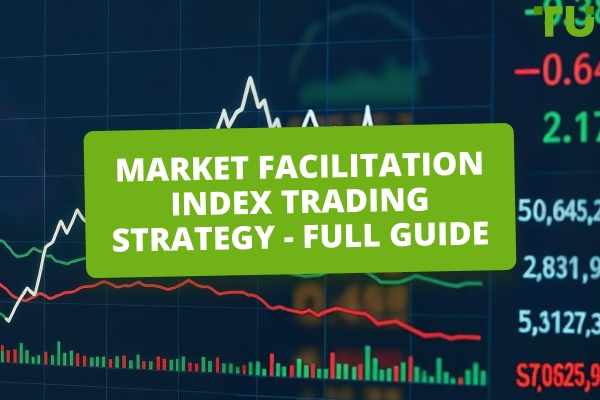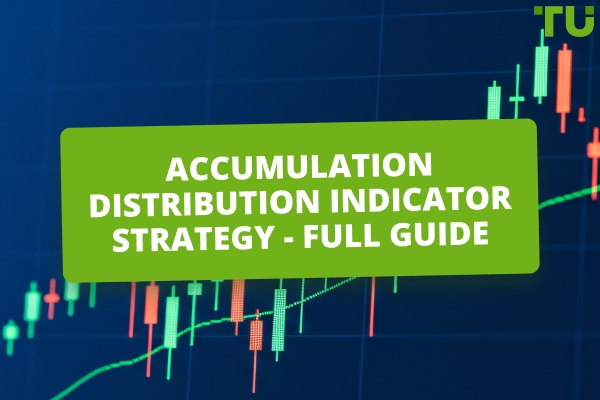
IC Markets vs FxPro - Fees Review Included
IC Markets and FxPro are both top-tier brokers with competitive fees. IC Markets offers lower spreads, starting from 0.1 pips on EUR/USD for ECN accounts, while FxPro has slightly higher spreads but provides commission-free trading on some accounts. Both brokers have no deposit or withdrawal fees and no inactivity fees. IC Markets is favored for its tight spreads, while FxPro stands out for its strong research tools and broader asset selection.
Which broker is better: IC Markets or FxPro? Our expert assessment conducted according to TU’s own methodology showed that IC Markets is one of the top brokers in the financial market with the TU Overall Score of 8.33 out of 10. FxPro is one of the top brokers in the financial market with the TU Overall Score of 8.48 out of 10. Find out more about TU Overall Score.
IC Markets vs FxPro - overall ranking
Both FxPro and IC Markets are widely recognized in the trading world, with strong regulatory backing and competitive conditions. Many traders refer to FxPro and IC Markets reviews to evaluate their features, costs, and overall performance before making a decision.
When comparing FxPro and IC Markets for trading, important factors include spreads, execution speeds, and the range of available instruments. Each broker offers a unique experience suited to different trading styles and strategies.
If you're deciding on the best broker between FxPro and IC Markets, the choice will depend on your preferred trading approach, platform features, and risk appetite. Both brokers provide advanced tools, multiple account options, and strong customer support, making them great choices for all types of traders.
IC Markets vs FxPro - overall ranking
| Feature | IC Markets | FxPro |
|---|---|---|
| Overall | 4.7 | 4.6 |
| Regulation | 5 | 5 |
| Fees | 4.9 | 3.9 |
| Trading assets | 4.6 | 4.6 |
| Investment instruments | 4.9 | 4.9 |
| Platforms and charting tools | 4.4 | 4.2 |
| Deposit and withdrawal | 4.6 | 4.5 |
| Research | 4.3 | 4.7 |
| Education | 4.4 | 4.6 |
| Support | 4.6 | 4.5 |
| Bonuses | 2.5 | 2.5 |
| Open an account |
IC Markets vs FxPro: pros and cons
IC Markets
IC Markets Trading Company, established in 2007 in Sydney, Australia, operates under the Australian Financial Services License (AFSL) and is regulated by the Australian Securities and Investment Commission (ASIC). Additionally, the broker is a member of the Australian Financial Complaint Authority (AFCA), which ensures high standards for resolving disputes between financial service providers and their clients. Regular audits further enhance the broker's reliability.
FxPro
The FxPro broker, registered in Cyprus in July 2006, is licensed by multiple financial regulators, including CySEC (Cyprus), Bahamas SCB, FCA (UK), and South African FSCA. Operating in over 170 countries, FxPro serves retail and institutional clients and has won more than 85 awards, such as “Best Forex Trading Platform” and “Best Trading Platform.” The broker is widely recognized for its trading tools, offering access to over 70 currency pairs, futures, stocks (e.g., Twitter, Apple, Google), stock indices, metals, and energy resources. FxPro also ensures high safety standards by keeping client funds in large international banks, segregated from its equity, and insured for additional security.
When analyzing the FxPro and IC Markets pros and cons, it becomes clear that both brokers provide strong trading tools, regulatory oversight, and access to diverse instruments. However, IC Markets is often favored for its low spreads, while FxPro stands out for its range of awards and extensive global presence.
For traders conducting a detailed FxPro and IC Markets comparison, both brokers offer significant advantages depending on individual trading needs. IC Markets focuses on affordability and tight spreads, ideal for cost-conscious traders. Meanwhile, FxPro appeals to those seeking a broker with a proven global reputation and a wide array of instruments.
IC Markets vs FxPro: pros and cons
| Pros and cons | IC Markets | FxPro |
|---|---|---|
| Overall pros |
|
|
| Overall cons | No Forex bonuses |
|
IC Markets vs FxPro: safety and regulation
Both IC Markets and FxPro hold strong regulatory licenses, ensuring a safe and compliant trading environment. IC Markets is primarily regulated by ASIC in Australia, while FxPro operates under multiple regulatory authorities, including CySEC, FCA, SCB, and FSCA, allowing them to serve traders in different jurisdictions.
For traders wondering whether FxPro and IC Markets are regulated, both brokers meet high industry standards and provide investor protection measures. Their adherence to strict compliance rules makes them trustworthy platforms for Forex and CFD trading.
IC Markets vs FxPro: safety and regulation
| Regulated By: | IC Markets | FxPro |
|---|---|---|
| Max. regulation level | Tier-1 | Tier-1 |
| Investor protection | €20,000 | €20,000 |
| FCA UK regulation | No | No |
| FINRA (U.S) | No | No |
| BaFin (Germany) | No | No |
| ASIC (Australia) | Yes | Yes |
| CFTC (U.S) | No | No |
| MAS | No | No |
| FSCA SA | No | No |
| BVI FSC | No | No |
| VFSC | No | No |
| FSA (Seychelles) | Yes | Yes |
IC Markets vs FxPro: trading conditions
Both FxPro and IC Markets offer platforms that cater to different trading needs. While FxPro includes MultiTerminal for managing multiple accounts, IC Markets supports MT4, MT5, and cTrader. Together, the FxPro IC Markets platform options provide traders with flexible tools for efficient trading.
When comparing the trading conditions at FxPro and IC Markets, traders often consider factors like execution speed, spreads, and account types. FxPro caters to diversified strategies with advanced analytical tools and multiple instruments, while IC Markets appeals to scalpers with its ECN execution and tight spreads. These differences make understanding trading conditions FxPro IC Markets essential for choosing the right broker.
For traders evaluating the FxPro and IC Markets minimum deposit, there are clear differences. FxPro allows entry with just $100, making it accessible for those with smaller capital. In contrast, IC Markets requires a higher minimum deposit of $200, catering to traders seeking a more professional setup.
IC Markets vs FxPro: trading conditions
| Trading conditions | IC Markets | FxPro |
|---|---|---|
| Minimum deposit | $200 | $100 |
| Trading platforms | MT4, MT5, cTrader | MT4, MT5, MultiTerminal |
| Max leverage (Futures) | 1-500 | 1:500 SCB regulation 1:30 (FCA, CySEC regulation) |
| Supported markets | Forex, futures, CFDs on indices, commodities, metals, stocks and bonds | Forex, CFDs on indices cryptocurrencies, stocks, energy commodities |
| Trading assets | 2000+ | 3000+ |
| Trading accounts | cTrader, Raw Spread, Standard | FxPro MT4 Instant (with fixed spreads), FxPro MT4 Instant (with floating spreads), FxPro MT4 Market, FxPro MT5, FxPro cTrader, VIP-account |
| Base account currencies | USD, AUD, GBP, CHF, JPY, NZD, SGD, CAD, HKD, BTC | USD, EUR, PLN, GBP, AUD, CHF, JPY, ZAR |
IC Markets vs FxPro: fees
A conversion fee may apply when making withdrawals and deposits in USD. If your funds are in another currency, they will need to be converted, which may add to your trading costs.
When comparing FxPro and IC Markets fees, it’s important to look at more than just commissions. Expenses like currency conversion fees and overnight charges are worth considering. If you compare FxPro and IC Markets spreads, IC Markets typically offers tighter spreads on ECN accounts, while FxPro’s spreads may appeal to traders who prefer a commission-free trading model.
Choosing between a FxPro or an IC Markets account depends on your trading strategy. IC Markets provides cTrader, Raw Spread, and Standard accounts created for traders with different strategies and experience levels. On the other hand, FxPro offers account types like MT4 Instant (fixed and floating spreads), MT4 Market, MT5, cTrader, and a VIP account, allowing traders to choose what fits their goals.
IC Markets vs FxPro: fees
| Fees | IC Markets | FxPro |
|---|---|---|
| Standard acc. spread EUR/USD, min pips | 0,8 | 0,8 |
| Standard acc. spread EUR/USD, max pips | 1,0 | 1,0 |
| ECN commission | 3,5 | 3,5 |
| ECN spread EUR/USD | 0,1 | 0,1 |
| Deposit fee, % | No | No |
| Withdrawal fee, % | No | No |
| Withdrawal fee, USD | No | No |
| Inactivity fee, $ | No | No |
A conversion fee may be applied as withdrawals and deposits are conducted in USD. Any other currency will have to be converted.
IC Markets vs FxPro: trading assets
Both FxPro and IC Markets offer plenty of trading opportunities, giving access to various markets like Forex, stocks, indices, and commodities. When comparing FxPro with IC Markets trading, IC Markets emphasizes ECN trading and lower spreads, appealing to professional traders, while FxPro focuses on a wider asset range.
For those involved in Forex trading with FxPro and IC Markets, both brokers give traders access to all types of currency pairs, including major, minor, and exotic ones. Competitive spreads and high leverage options are features of both platforms. IC Markets stands out for its tight spreads and fast execution speeds, making it a favorite among scalpers and high-frequency traders. Meanwhile, FxPro is preferred by traders who value a variety of assets and detailed research tools.
IC Markets vs FxPro: trading assets
| Asset name | IC Markets | FxPro |
|---|---|---|
| Overall | 2000+ trading assets | 3000+ trading assets |
| Forex | Yes | Yes |
| Stocks | Yes (CFD) | Yes (CFD) |
| Metals | Yes (CFD) | Yes (CFD) |
| Cryptocurrencies | Yes (CFD) | Yes (CFD) |
| Energy | Yes (CFD) | Yes (CFD) |
| Indices | Yes (CFD) | Yes (CFD) |
| ETFs | Yes (CFD) | No |
| Bonds | Yes (CFD) | No |
| Mutual funds | No | No |
| Stock options | No | No |
| Futures trading | Yes (CFD) | No |
| Binary options | No | No |
IC Markets or FxPro: investment programs
Both FxPro and IC Markets offer investment programs to assist traders in managing their portfolios effectively. These programs include features like copy trading, which allows beginners to follow and replicate strategies from experienced traders, and MAM/PAMM accounts, made for professionals managing multiple clients.
For traders looking into investment programs with FxPro and IC Markets, these brokers provide several ways to earn passive income. Whether you opt for automated trading through copy trading or prefer managing multiple accounts via MAM/PAMM, both brokers offer solutions adapted to different trading needs and risk levels.
IC Markets or FxPro: investment programs
| Investments programs | IC Markets | FxPro |
|---|---|---|
| Copy trading | Yes | Yes |
| MAM/PAMM | Yes | Yes |
| Managed accounts | No | No |
| Other | No | No |
Trading platforms: FxPro or IC Markets
Both FxPro and IC Markets offer trading platforms tailored to traders' needs. While both brokers support MetaTrader 4 (MT4) and MetaTrader 5 (MT5), IC Markets also includes cTrader, which is known for its efficient order execution and automation. This makes comparing the FxPro and IC Markets platform important for traders looking for variety.
When deciding between the two, the FxPro and IC Markets trading experience depends on individual priorities. IC Markets is a great choice for traders who prefer ECN trading with ultra-low spreads, whereas FxPro is known for its easy-to-use interface, multi-asset support, and advanced tools for market analysis.
Trading platforms: FxPro or IC Markets
| Trading platforms | IC Markets | FxPro |
|---|---|---|
| MT4 | Yes | Yes |
| MT5 | Yes | Yes |
| cTrader | Yes | No |
| Appropriate platform | IC Markets terminal | FxPro |
| Others | No | No |
IC Markets vs FxPro: deposit and withdrawal methods
FxPro and IC Markets offer various ways to manage funds, including deposits and withdrawals. Both brokers support common methods like bank transfers, credit/debit cards, and e-wallets such as Neteller and Bitcoin, giving traders secure and flexible options to handle their money.
When it comes to the FxPro and IC Markets withdrawal process, both brokers handle requests quickly and smoothly. Most withdrawal requests are processed within 24 hours, ensuring traders can access their funds without delay. While neither broker charges withdrawal fees, some payment providers might add conversion or transaction costs.
For those comparing the FxPro and IC Markets minimum deposit amounts, FxPro’s $100 minimum deposit makes it a great choice for new traders. On the other hand, IC Markets requires a $200 deposit, which lets traders take advantage of tight spreads and ECN tools, making it ideal for those seeking competitive trading conditions.
IC Markets vs FxPro: deposit and withdrawal methods
| Deposit and withdrawal method | IC Markets | FxPro |
|---|---|---|
| Bank wire | Yes | Yes |
| Bank card | Yes | Yes |
| Neteller | Yes | Yes |
| BTC | Yes | Yes |
| Wise | No | No |
| Payoneer | No | No |
| USDT | Yes | Yes |
IC Markets vs FxPro: research
FxPro and IC Markets provide diverse research types to keep traders updated and confident in their decisions. Both brokers offer real-time news, advanced charting tools, and access to fundamental data, giving traders the tools they need to analyze market trends effectively.
When comparing the FxPro and IC Markets research types, traders can benefit from features like in-depth market analysis, trading ideas, and regular email updates. These tools are useful for all traders, whether beginners or experts, to improve strategies and adapt to changing markets.
IC Markets vs FxPro: research
| Research type | IC Markets | FxPro |
|---|---|---|
| News feed | Yes | Yes |
| Fundamental data | Yes | Yes |
| Chart analysis | Yes | Yes |
| Trading ideas | Yes | Yes |
| E-Mail reports | Yes | Yes |
IC Markets vs FxPro: education
Both FxPro and IC Markets are great choices for beginners, making it easier for new traders to get started with trading. With demo accounts that offer risk-free practice and user-friendly platforms, these brokers give beginners the tools they need to learn the basics and create effective trading strategies.
When it comes to FxPro and IC Markets education, both brokers excel by offering a wide range of learning resources. These include video tutorials, webinars, and trading articles made to help traders, whether they’re beginners or experienced. Beginners can start with step-by-step guides, while seasoned traders can explore advanced techniques and expert insights.
For those comparing the educational tools at FxPro and IC Markets, both brokers provide webinars, detailed guides, and hands-on tools to improve your market analysis skills. Whether you’re just starting out or aiming to refine your strategies, these brokers help you build strong skills for lasting success.
IC Markets vs FxPro: education
| Education type | IC Markets | FxPro |
|---|---|---|
| Demo-account/Paper trading | Yes | Yes |
| Webinars | Yes | Yes |
| Articles | Yes | Yes |
| Videos | Yes | Yes |
| Cent account | No | No |
FxPro vs IC Markets: support
IC Markets and FxPro provide excellent support, so traders can get help when they need it. Both brokers operate 24/5, letting traders reach out easily via email, phone, or live chat to resolve their issues efficiently.
Both brokers are recognized for their helpful teams that assist with everything from technical problems to account management and trading inquiries. Their quick response times make them a good choice for traders who need quick and reliable support.
For real-time communication, the IC Markets and FxPro live chat feature is perfect for quickly solving urgent problems. Traders can instantly connect with support representatives to address issues such as trading platform errors, account verification, or deposit and withdrawal concerns.
FxPro vs IC Markets: support
| Support features | IC Markets | FxPro |
|---|---|---|
| Working days | 24/5 | 24/5 |
| Yes | Yes | |
| Phone | Yes | Yes |
| Online chat | Yes | Yes |
| Other | No | No |
IC Markets vs FxPro: Forex bonuses and promo
Neither IC Markets nor FxPro currently offer Forex trading bonuses, as both brokers prioritize competitive trading conditions over promotional incentives. Instead of relying on bonuses, traders benefit from low spreads, advanced trading platforms, and strong regulatory protections.
For traders looking for FxPro and IC Markets special offers, the best available promotions come through affiliate and partnership programs. FxPro, for example, provides a high-paying affiliate program, where traders can earn commissions for referring new clients, making it an attractive option for those looking to generate additional income.
While there is no FxPro or IC Markets deposit bonus, both brokers focus on providing tight spreads, fast execution, and a wide range of trading instruments, ensuring that traders get the best possible value without relying on temporary promotions.
IC Markets vs FxPro: Forex bonuses and promo
| Promo | IC Markets | FxPro |
|---|---|---|
| Forex bonus | Not offered | Not offered |
| Affiliate program | % of trading commissions | Up to $1.100 per client you introduce to FxPro |
Conclusion
IC Markets and FxPro are both top-tier brokers, offering strong regulation, diverse assets, and competitive trading conditions. IC Markets excels in tight spreads and ECN execution, making it ideal for scalpers and algorithmic traders. FxPro stands out for its wide range of assets and strong research tools, appealing to traders seeking diversity.
Choosing between FxPro and IC Markets depends on your trading style. If you prioritize low-cost trading and fast execution, IC Markets is a great choice. If you prefer broader market access and educational support, FxPro may be better. Both brokers provide secure transactions, reliable platforms, and professional customer support, ensuring a solid trading experience.
FAQs
What should I start Forex trading with?
It is desirable for novice traders to explore trading using a demo account to learn the market and how to work on the trading platform without the risk of suffering losses. At the same time, it is advisable to review the educational materials of the broker, learn trading basics. Then you can deposit the minimum required amount to perform a small number of transactions. If you manage to close several months in a row in the black, without substantial drawdowns on the account, then you can try increasing your deposit. Also trying to copy trades automatically is a good option for a start.
What amount should I start trading with?
The minimum deposit of $10 may be enough to trade on the cent account. However, for trading on Standard/ECT accounts, experts recommend starting with at least $200-500. With this amount, you can use not a very big leverage. Remember, getting carried away with the margin is the main cause of losses among beginners.
What should I take into consideration when choosing a broker?
Experts recommend looking at the broker’s reliability first and foremost. The other important features include basic trading conditions, commissions and fees, customer reviews. If brokers are approximately the same in terms of basic criteria, you need to choose based on your experience and tasks. One broker may be good for professionals and another – for novice traders.
Is it possible to be scammed by a broker with a license from a reputable regulator?
In theory, yes. But in practice, it takes so much time and money to comply with the requirements of reputable regulators that it is not worth it for scammers to bother obtaining a legitimate license.
Team that worked on the article
Mikhail Vnuchkov joined Traders Union as an author in 2020. He began his professional career as a journalist-observer at a small online financial publication, where he covered global economic events and discussed their impact on the segment of financial investment, including investor income. With five years of experience in finance, Mikhail joined Traders Union team, where he is in charge of forming the pool of latest news for traders, who trade stocks, cryptocurrencies, Forex instruments and fixed income.
Chinmay Soni is a financial analyst with more than 5 years of experience in working with stocks, Forex, derivatives, and other assets. As a founder of a boutique research firm and an active researcher, he covers various industries and fields, providing insights backed by statistical data. He is also an educator in the field of finance and technology.
As an author for Traders Union, he contributes his deep analytical insights on various topics, taking into account various aspects.
Mirjan Hipolito is a journalist and news editor at Traders Union. She is an expert crypto writer with five years of experience in the financial markets. Her specialties are daily market news, price predictions, and Initial Coin Offerings (ICO).














